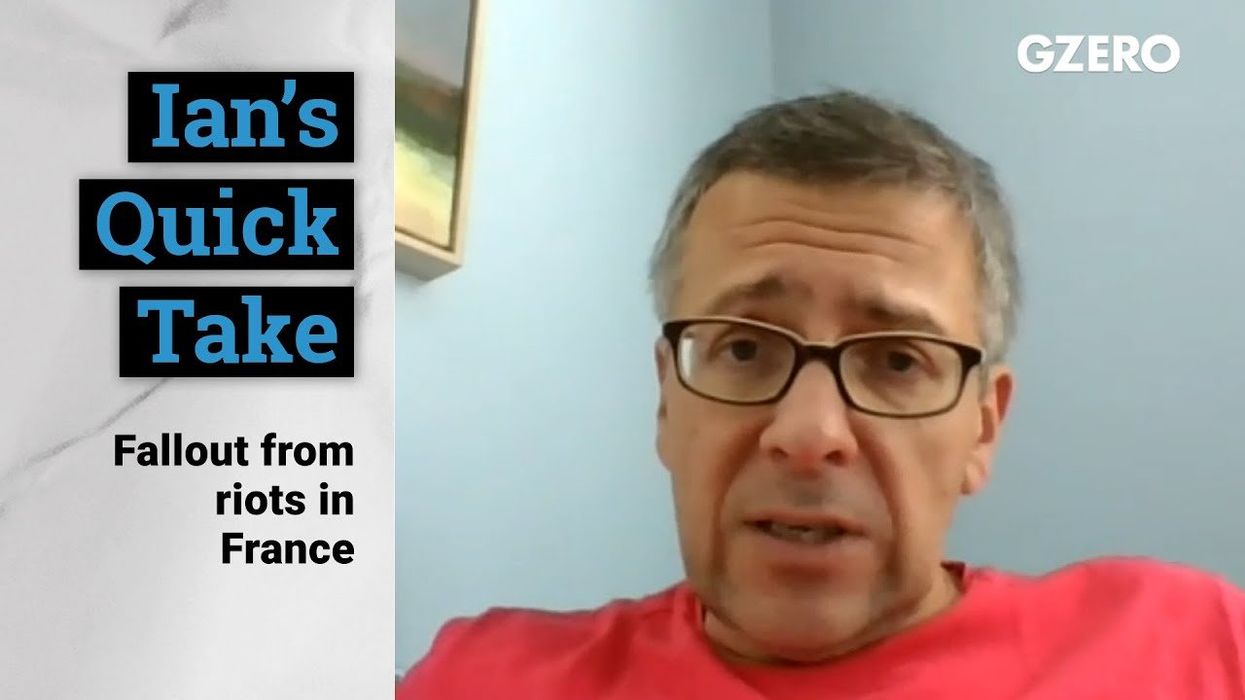Quick Take
Fallout from riots in France
Ian Bremmer's Quick Take: You've seen massive riots across France over almost a week, the worst in nearly 20 years in France, which is really saying something for that country. Social protest is basically taken as sport and riots are frequent. But even in that context, this has been notable and exceptional. What what sparked it off has nothing to do with extending pensions from 62 to 64.
Jul 03, 2023


